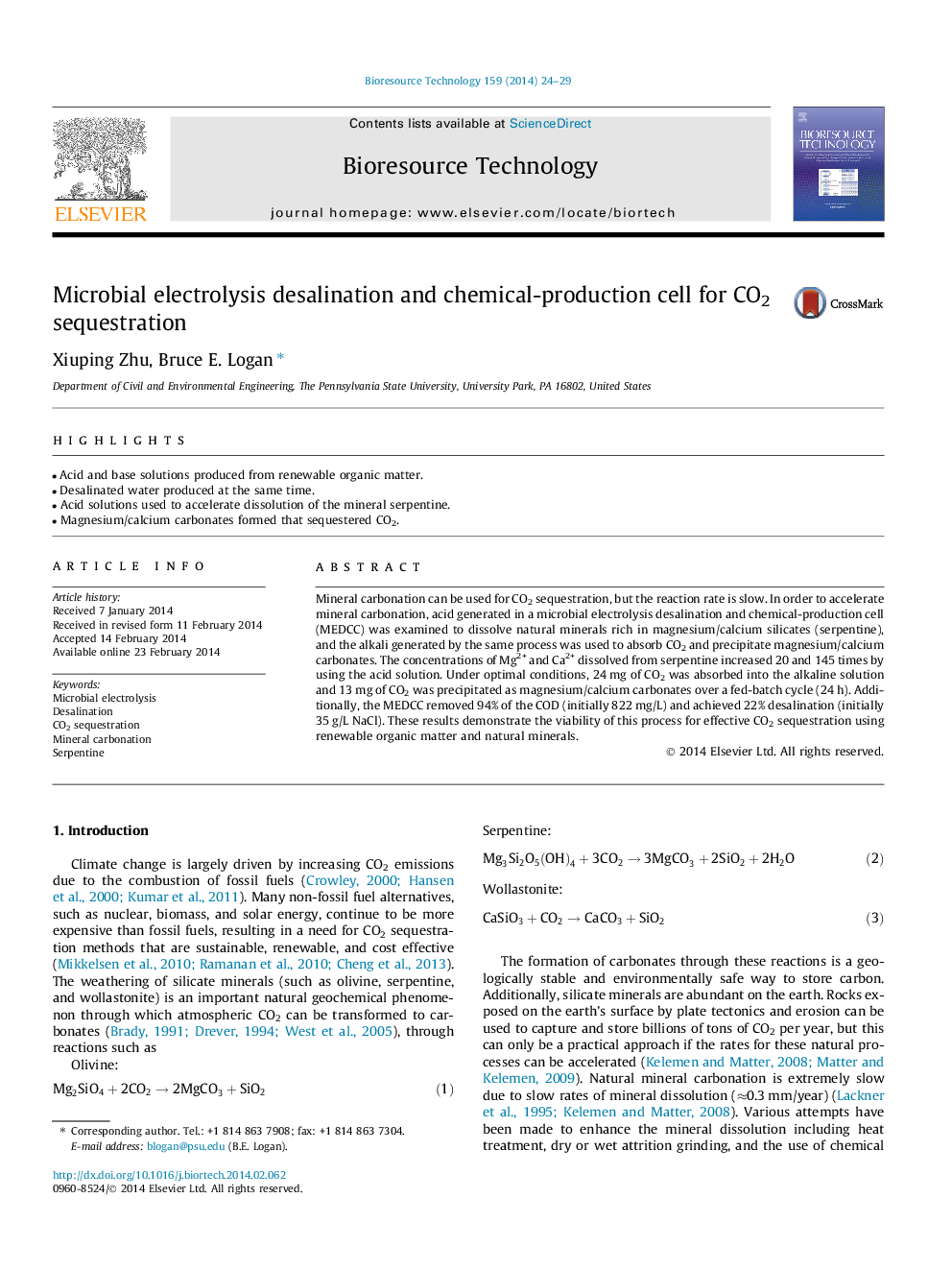| Article ID | Journal | Published Year | Pages | File Type |
|---|---|---|---|---|
| 7078517 | Bioresource Technology | 2014 | 6 Pages |
Abstract
Mineral carbonation can be used for CO2 sequestration, but the reaction rate is slow. In order to accelerate mineral carbonation, acid generated in a microbial electrolysis desalination and chemical-production cell (MEDCC) was examined to dissolve natural minerals rich in magnesium/calcium silicates (serpentine), and the alkali generated by the same process was used to absorb CO2 and precipitate magnesium/calcium carbonates. The concentrations of Mg2+ and Ca2+ dissolved from serpentine increased 20 and 145 times by using the acid solution. Under optimal conditions, 24Â mg of CO2 was absorbed into the alkaline solution and 13Â mg of CO2 was precipitated as magnesium/calcium carbonates over a fed-batch cycle (24Â h). Additionally, the MEDCC removed 94% of the COD (initially 822Â mg/L) and achieved 22% desalination (initially 35Â g/L NaCl). These results demonstrate the viability of this process for effective CO2 sequestration using renewable organic matter and natural minerals.
Related Topics
Physical Sciences and Engineering
Chemical Engineering
Process Chemistry and Technology
Authors
Xiuping Zhu, Bruce E. Logan,
